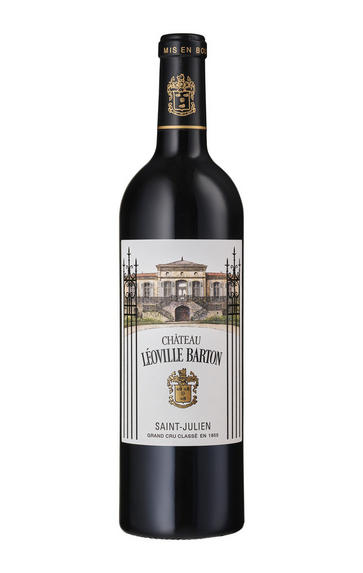
2021 Château Léoville Barton, St Julien, Bordeaux
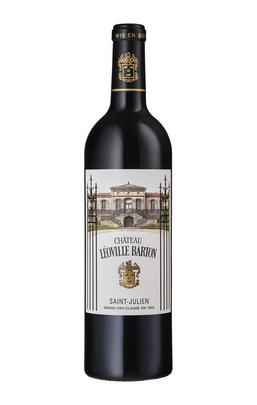
Critics reviews
The 2021 Léoville-Barton was picked from 27 September until 7 October, matured in 60% new oak. The alcohol is 13.12%. It has a clean and pure bouquet with blackberry, bilberry, cedar and hints of shucked oyster shell: focused and very well delineated, classic in style. The palate has a smooth and cohesive entry, very well-knit with beautifully integrated oak. Crisp acidity with the perfect amount of tension on the classically-styled finish, this Léoville Barton demonstrates the advantages of their brand new cellar (even though the reception was not finished in time!) I cannot see any reason not to own a few bottles of this in your cellar.
Drink 2026 - 2050
Neal Martin, vinous.com, (May 2022)
St Julien’s location next to the river Garonne saved it from the worst of the frost, and this is one of the best wines in the appellation. It has energy and plenty of depths of fruit to work through, with powerful spice notes of clove, white pepper and turmeric, with the fresh acidities in the cassis and bilberry fruit turned into a prop for propelling things forward through the palate. And even if all this wasn’t the case, this is a wine to buy in 2021 in memory of Anthony Barton, long-term owner and Bordeaux legend, who died in January 2022. 60% new oak. Tasted twice.
Drink 2027 - 2042
Jane Anson, janeanson.com (May 2022)
A terrific success, the 2021 Léoville Barton unwinds in the glass with aromas of blackcurrant, wild berries and plums mingled with hints of pencil shavings, loamy soil and cigar wrapper. Medium to full-bodied, deep and seamless, it's concentrated and tensile, with beautifully refined tannins, lively acids and all the class that an elevated percentage of Cabernet Sauvignon growing in deep gravel can provide. It's the first vintage vinified in the Barton family's new winery, and I suspect that contributes to the ultra-refined quality of tannin this year. The blend is 84% Cabernet Sauvignon, 11% Merlot and 3% Cabernet Franc. Tasted three times.
William Kelley, Wine Advocate (Apr 2022)
Minerally and racy with a density that is often missing in 2021. Layers of fruit and plentiful but refined tannins. Structured and persistent, the quality of the vineyard appreciable. Fresh and well defined. Good balance. Definite potential.
Drink 2029 - 2045
James Lawther, jancisrobinson.com (May 2022)
About this WINE
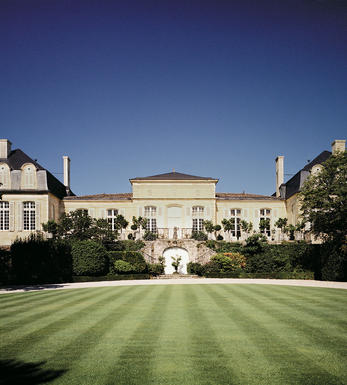
Chateau Leoville Barton
Château Léoville Barton is the smallest portion of the great Léoville estate and has been owned by the Barton family since 1826. There is no château and the wine is made at Langoa Barton.
Léoville Barton's 48 hectares of vineyards are located in the east of the St-Julien wine appellation and lie on gravelly-clay soils. They are planted with Cabernet Sauvignon 72%, Merlot 20%, Cabernet Franc 8%. The wine is matured in oak barriques (50% new) for 18 months.
Eighth and ninth-generation family members Lilian and Damien Barton took over the reins here in 2022, after the death of Anthony Barton. Anthony was responsible for the quality at Léoville Barton soaring; his tenure saw the wine changing from a solid, mid-performing 2ème Cru Classé to one of the most exciting and scintillating wines in St. Julien. Under Lilian and Damien’s care, business at the château is better than ever.
Léoville Barton is tannic and austere in youth but with time develops the classic cedary character that is the hallmark of St. Julien, along with intensely pure blackcurrant and cassis fruit notes. Léoville Barton's wines are made for extended cellaring and tend to show at their best with 10-15 years of bottle ageing.
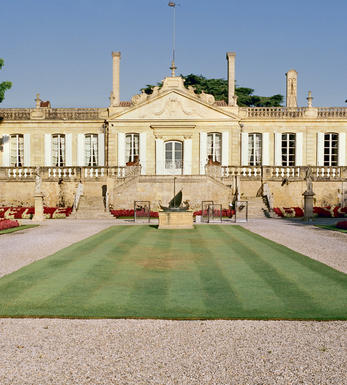
St Julien
St Julien is the smallest of the "Big Four" Médoc communes. Although, without any First Growths, St Julien is recognised to be the most consistent of the main communes, with several châteaux turning out impressive wines year after year.
St Julien itself is much more of a village than Pauillac and almost all of the notable properties lie to its south. Its most northerly château is Ch. Léoville Las Cases (whose vineyards actually adjoin those of Latour in Pauillac) but, further south, suitable vineyard land gives way to arable farming and livestock until the Margaux appellation is reached.
The soil is gravelly and finer than that of Pauillac, and without the iron content which gives Pauillac its stature. The homogeneous soils in the vineyards (which extend over a relatively small area of just over 700 hectares) give the commune a unified character.
The wines can be assessed as much by texture as flavour, and there is a sleek, wholesome character to the best. Elegance, harmony and perfect balance and weight, with hints of cassis and cedar, are what epitomise classic St Julien wines. At their very best they combine Margaux’s elegance and refinement with Pauillac’s power and substance.
Ch. Léoville Las Cases produces arguably the most sought-after St Julien, and in any reassessment of the 1855 Classification it would almost certainly warrant being elevated to First Growth status.
Recommended Châteaux: Ch. Léoville Las Cases, Ch.Léoville Barton, Ch Léoville Poyferré, Ch. Ducru-Beaucaillou, Ch Langoa Barton, Ch Gruaud Larose, Ch. Branaire-Ducru, Ch. Beychevelle
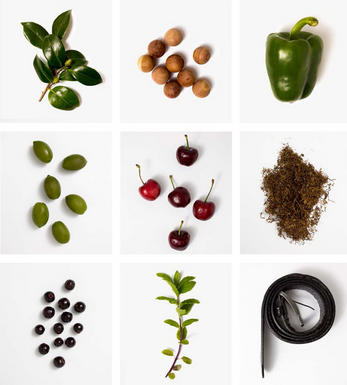
Cabernet Sauvignon Blend
Cabernet Sauvignon lends itself particularly well in blends with Merlot. This is actually the archetypal Bordeaux blend, though in different proportions in the sub-regions and sometimes topped up with Cabernet Franc, Malbec, and Petit Verdot.
In the Médoc and Graves the percentage of Cabernet Sauvignon in the blend can range from 95% (Mouton-Rothschild) to as low as 40%. It is particularly suited to the dry, warm, free- draining, gravel-rich soils and is responsible for the redolent cassis characteristics as well as the depth of colour, tannic structure and pronounced acidity of Médoc wines. However 100% Cabernet Sauvignon wines can be slightly hollow-tasting in the middle palate and Merlot with its generous, fleshy fruit flavours acts as a perfect foil by filling in this cavity.
In St-Emilion and Pomerol, the blends are Merlot dominated as Cabernet Sauvignon can struggle to ripen there - when it is included, it adds structure and body to the wine. Sassicaia is the most famous Bordeaux blend in Italy and has spawned many imitations, whereby the blend is now firmly established in the New World and particularly in California and Australia.


Buying options
Add to wishlist
Description
Cabernet Sauvignon 84%, Merlot 11%, Cabernet Franc 5%
Damien Barton Sartorius’s new cuverie, with its more adapted design, has allowed a small quantity of Cabernet Franc to be included in the grand vin for the first time in years. Overall, there is more precision and refined purpose in the wine. It carries the hallmarks of St Julien, with succulent and silky dark fruit and a warm spiciness. Yet it feels compact and compressed, indicating complexity to come. This is a laudable success and aptly worthy of Anthony Barton’s memory, being the last vintage before his passing in January 2022. Drink 2027-2045.
Our score: 17/20
Berry Bros. & Rudd, April 2022
wine at a glance
Delivery and quality guarantee